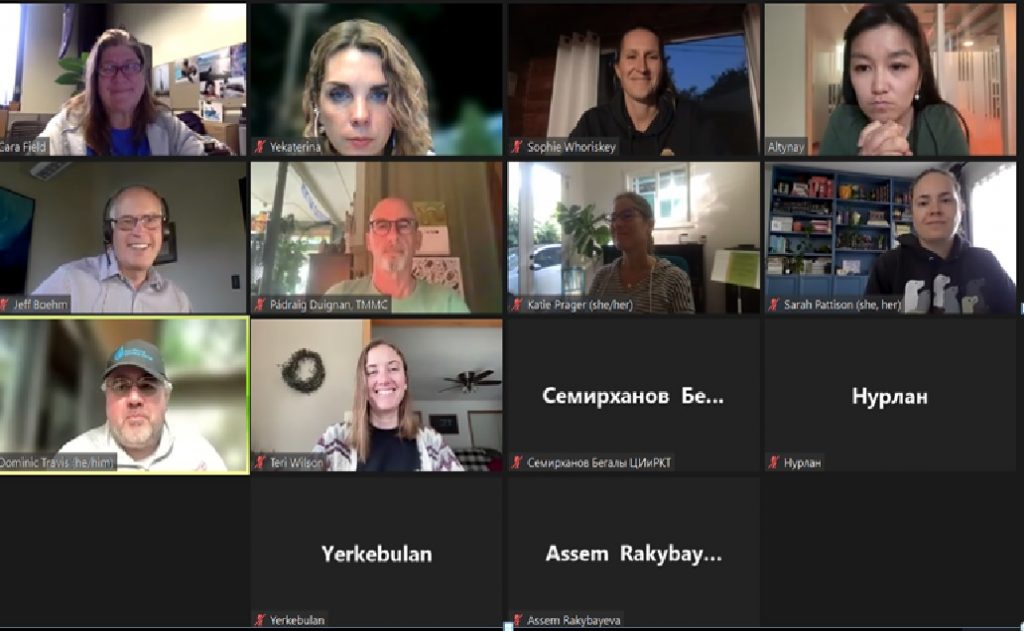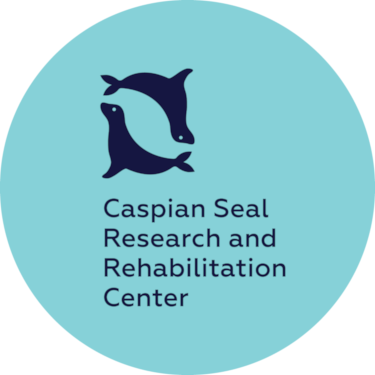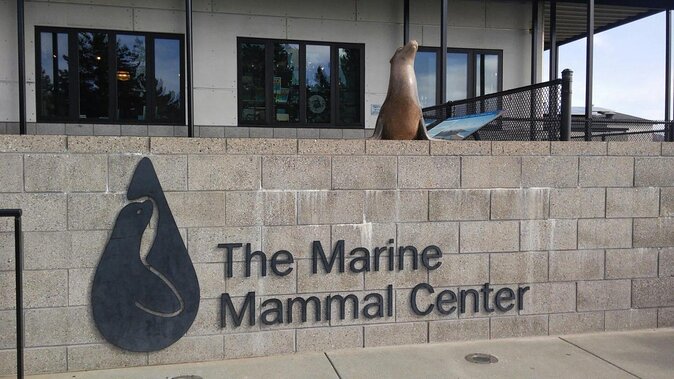Within widespread scientific research on conservation of Caspian endemic of Central-Asian Institute of Environmental Research (CAIER) held an online meeting with specialists from The Marine Mammal Center (Center for Marine Mammals, USA).
The private American company, as well as Caspian Seals Research and Rehabilitation Center, is involved in rescue, rehabilitation and release of injured, sick or abandoned marine mammals. Since its founding in 1975, The Marine Mammal Center has helped save more than 24 thousand marine animals with the help of 1300 volunteers.
The meeting was hosted by CAIER along with leading scientists at The Marine Mammal Center: Cara Field, Medical Director, Padraig Duignan, Director of Pathological Research, Sarah Pattison, Director of Clinical Operations, Teri Wilson, Director of Field Operations, Dominic Travis, Lead Environmental and Biosecurity Program Specialist, Sophie Whoriskey, Hawaiian Monk Seal Conservation Veterinarian, Jeff Boehm, Chief External Relations Officer.
During the meeting, Altynai Kaidarova, Chief Researcher of Caspian Seals Research and Rehabilitation Center Seal, Ph.D. spoke about the long-term research organized by Asel Tasmagambetova, ecologist, founder of CAIER to save Caspian endemic.
The report presented data on unique research conducted within the 7th international CAIER expedition to study the alarming environmental situation in the Caspian. It was the first-time when samples of Caspian seal milk were taken and biomaterials for research on level of stress hormone, immune response, and level of intoxication were collected.
Scientists have installed electronic tracking sensors on seals that have undergone veterinary treatment.
Caspian Seals Research and Rehabilitation Center represented new developments in the field of research aimed at conservation of the Caspian seal. The Center is currently actively developing new lightweight and flexible sensor technologies for monitoring Caspian seals. These sensors provide valuable data about the condition of seals and their habitat, which could be key to saving this unique species.

Both parties have agreed to exchange practices on animal response, diagnosis and care. The California Marine Mammal Center will share some of their best practices on existing protocols. Members of our Center will be studying these practices online and may be they will visit California for teaching purposes.
These new sensors will also be tested at the California Marine Mammal Center for further testing their performance and reliability in a variety of environments and marine mammal species.
Moreover CAIER, led by environmentalist Assel Tasmagambetova, has been studying the decline in the Caspian seal population since 2015. During this time, 7 international expeditions were carried out, and in 2020, their data was the reason for inclusion of Caspian endemic in Red Book of Kazakhstan.
In 2019, Caspian Seals Research and Rehabilitation Center was founded at CAIER. CAIER scientists developed 63 protocols for the treatment of Caspian endemics.
For 4 years, the Center saved more than 40 Red Book animals.
In 2022, Scientific Council was founded at CAIER, which included the world’s leading scientists in the field of marine biodiversity. They conduct fundamental study on the reasons for decline of the Caspian seal.

